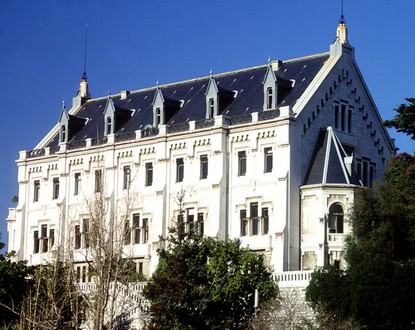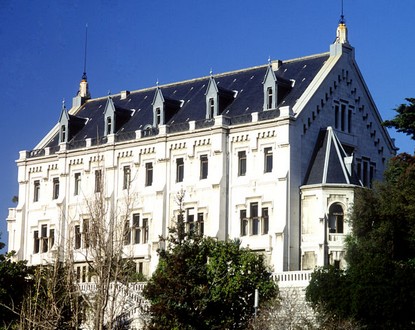Since January 1, 2013, the University Nice Sophia Antipolis has had a Maison des Sciences de l’Homme et de la Société Sud-Est, a service and research unit of CNRS, federating 9 research laboratories in human and social sciences around a few major strategic axes.
 This MSHS Sud-Est has been part of the national MSH network since last June.
This MSHS Sud-Est has been part of the national MSH network since last June.
A potential of 700 scientists
Located on the Saint Jean d’Angély campus and adjacent to the new university library, this MSHS contributes to strengthening the campus and giving it its full scientific dimension.
A place of meetings, cooperation, and interdisciplinary projects, this new installation allows for the permanent grouping of the majority of teacher-researchers and researchers from CNRS and IRD (Institute of Research and Development) in a single building and promotes interdisciplinary interaction and the implementation of joint research.
It comprises more than 300 researchers and teacher-researchers and 333 doctoral students. The LISA, UMR CNRS of the University of Corsica located in Corte, is also part of the new MSHS and includes nearly 90 researchers and teacher-researchers.
The MSHS Sud-Est also participates in scientific cooperation and dissemination grouped into several fields beyond human and social sciences, fostering interactions with information and communication sciences, mathematics, biology, neuroscience, chemistry, geochemistry, and geosciences.
It also aims to develop its international relations based on the scientific priorities emerging from its four research axes and the relations already developed by its research units in terms of cooperation supported by funded research contracts and missions, student and/or researcher and teacher-researcher exchange programs, formation of scientific associations and/or scholarly societies.
The MSHS Sud-Est and its research axes
Four multidisciplinary themes have been identified and break down into 4 research axes:
• Cognition and cooperation: this axis is based on a set of research linking internal dimensions (languages, memory, attention,…) and external (forms of social interaction between individuals) aspects of cognition.
• Communities, networks, and uses: this axis is dedicated to the study of the forms and dynamics of economic and social communities and networks, particularly digital, and the role played by artifacts and uses in their operating modes.
• Europe and its others: this axis focuses on the relations between Europe and other geographical areas close to it in societal, cultural, and historical terms.
• Territories, technical systems, and social uses: this axis concerns human/environment relations within territorially defined spaces and the uses and technologies associated with them.



